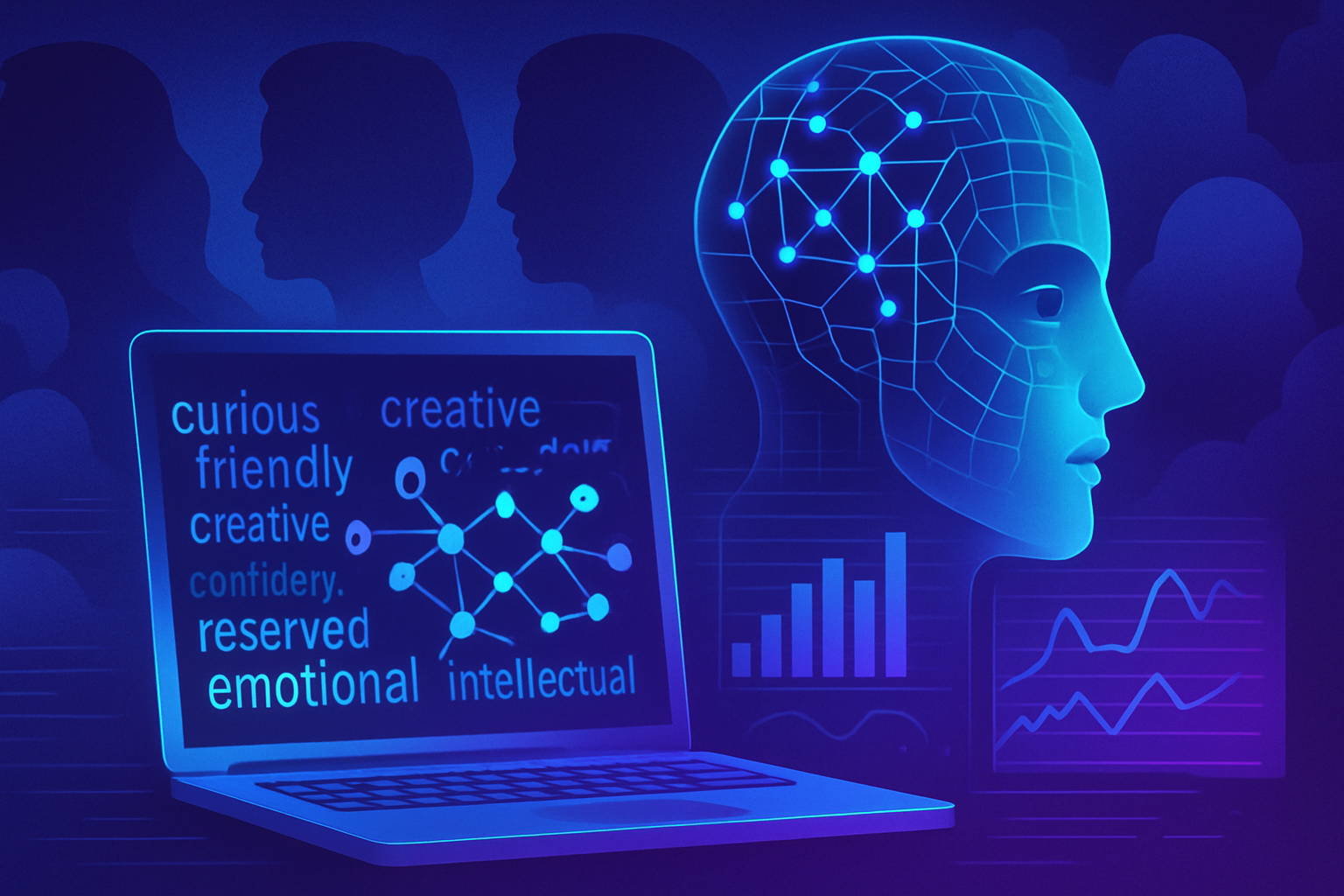The advances in artificial intelligence models are revolutionizing our understanding of personality traits. By analyzing writings, these innovative systems decode psychological elements with unprecedented accuracy. The synergy between AI and psychology offers extraordinary perspectives for comprehending human complexity.
The use of these intelligent tools, now capable of understanding natural language, raises questions about the ethics and reliability of analyses. The distinction between contextual meaning and data bias becomes essential in understanding these models.
Discovery at the University of Barcelona
A research team at the University of Barcelona has uncovered significant advances in detecting personality traits using artificial intelligence (AI) models. In a study published in the journal PLOS One, researchers demonstrated how AI can analyze written texts to extract psychological characteristics while clarifying the decision-making process of these systems.
Analysis of AI Models
Two advanced AI models, BERT and RoBERTa, were examined. These models process textual data based on two main psychological frameworks: the Big Five system and the Myers-Briggs Type Indicator (MBTI), which classify individuals according to specific dimensions such as extraversion-introversion.
Explainability Tools
Explainability techniques played a fundamental role in this research. They allowed researchers to “open the black box” of algorithms and analyze relevant signals from psychological data. The authors used a method called integrated gradients to identify the words or phrases that influence personality trait predictions.
Importance of Linguistic Elements
This methodology allowed for the visualization and quantification of the importance of linguistic elements. For example, the word hate, often associated with negative traits, can be used in a context revealing kindness, illustrating the importance of contextual analysis to avoid erroneous conclusions.
Limitations of the MBTI Model
The study highlighted the limitations of the MBTI model. Despite its widespread use in certain areas, the model has shortcomings for the automatic assessment of personality. Results show that models often rely more on artifacts than on real psychological patterns.
Applications of Automatic Personality Detection
Automatic detection techniques can transform personality psychology. By identifying linguistic patterns associated with personality traits, psychologists can adopt more natural and less intrusive assessment methods. This approach is particularly beneficial for studying large populations.
Impact in the Clinical Field
Automated personality detection methodologies provide valuable assistance for initial evaluation and patient follow-up. Attention focuses on changes in language or verbal expression, thus revealing crucial psychological elements for therapy.
Implications Across Various Sectors
The ramifications of these techniques extend to other fields such as personnel selection, educational personalization, and social research. They can facilitate the analysis of large volumes of textual data and contribute to the development of virtual assistants and conversational agents, aligning with more natural interactions.
Toward a Multimodal Approach
Researchers are considering the integration of multimodal data, combining text with other forms of expression such as voice. They are also exploring the application of tools in real-world contexts, wishing to collaborate with professionals to evaluate the effectiveness of these techniques in the field.
Future Research Perspectives
The next steps of this study involve expanding the analysis to other types of texts, languages, and cultures. This approach aims to confirm the robustness of the identified patterns across various contexts.
Ongoing research will also focus on other psychological constructs beyond personality, such as emotional states. Collaborative work with clinicians and human resources professionals will ensure a positive and ethical impact of these tools.
For examples of practical applications illustrating the use of AI in profile writing, refer to this article on the development of secure bots.
Common FAQs
How do AI models identify personality traits in written texts?
AI models, such as BERT and RoBERTa, analyze textual data by following established psychological patterns, like the Big Five and MBTI, to detect personality characteristics from various linguistic patterns found in writings.
What techniques are used to ensure the transparency of AI models in personality trait analysis?
Researchers use explainability techniques, such as integrated gradients, which allow for the specific identification of which words or phrases influence the prediction of a particular personality trait, thus ensuring that results are based on psychologically relevant signals.
What is the impact of using AI models on personality psychology?
These models enable the identification of linguistic patterns related to different personality traits, thereby simplifying and enriching the assessment of individuals, particularly over large populations, while providing a less intrusive approach.
What are the main limitations of the MBTI model compared to the Big Five in AI personality analysis?
The MBTI model has limitations in terms of automatic personality assessment because it tends to rely more on artifacts than on actual patterns, unlike the Big Five, which has a more solid foundation for automatic and psychometric analyses.
How can AI contribute to clinical evaluation of patients?
Automatic text analysis by AI can assist in initial evaluation and patient follow-up by highlighting changes in their language or verbal expression, which can be crucial for assessing important psychological elements in therapy.
What role can AI models play in personnel selection?
AI personality detection techniques can facilitate personnel selection by allowing for the evaluation of candidates’ personality traits in a more objective and scientific manner, thus contributing to more suitable recruitments.
Will AI models replace traditional personality tests?
No, AI models will not replace traditional personality tests in the short term; they will rather complement them by offering a deeper perspective integrating natural language analysis and other data sources.






